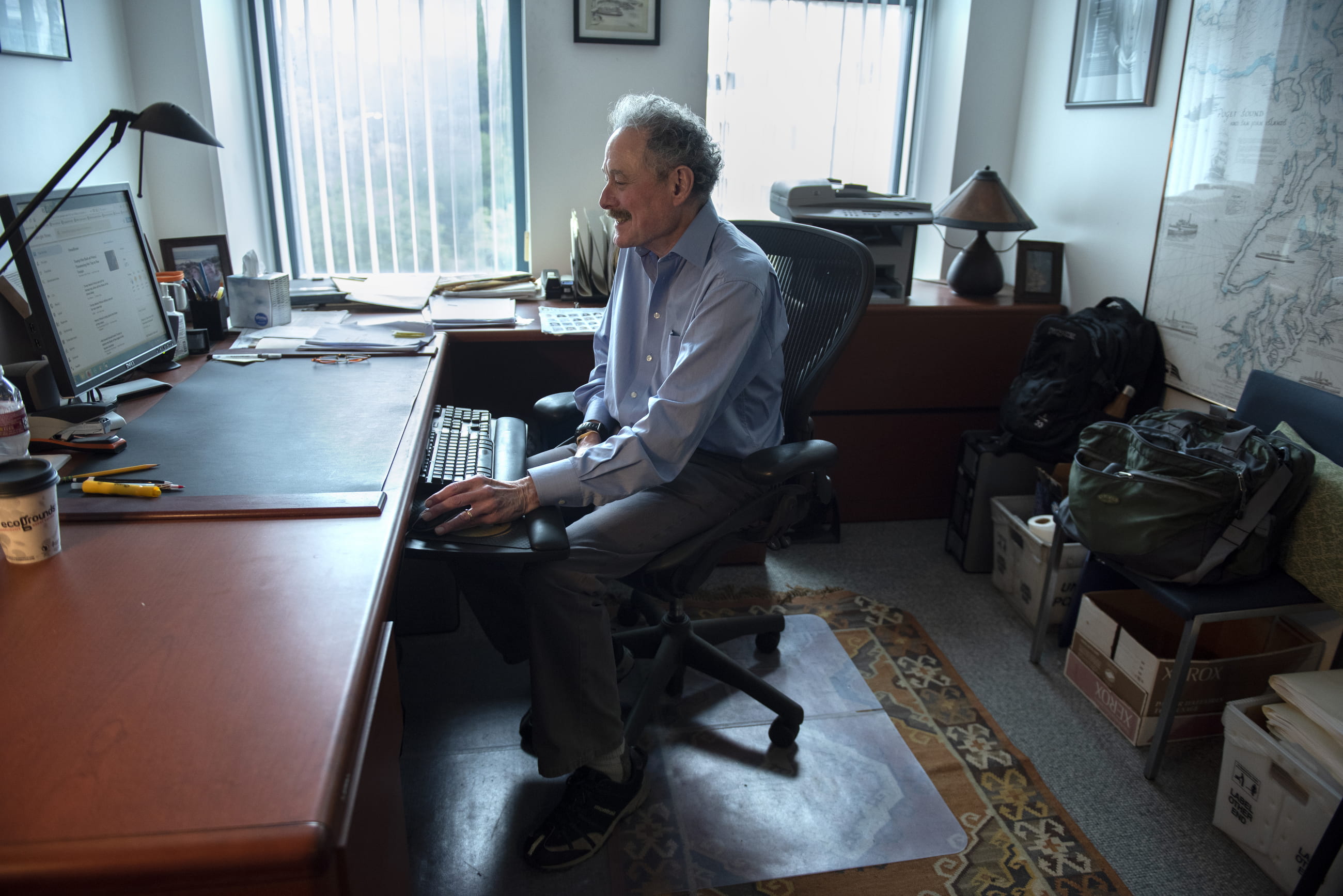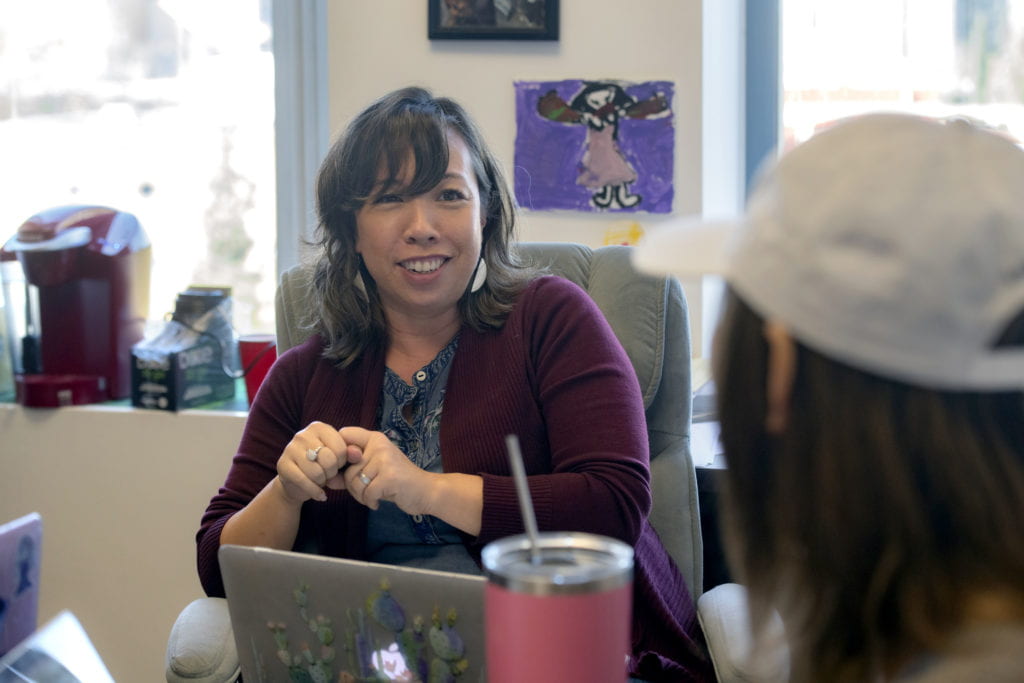UCI sees jump in literary journalism majors
The pandemic has affected methods, but the mission of truth-telling is more important than ever

The coronavirus has changed both the practice and business of journalism, even as it has made the need for accurate information all the more apparent.
Newsrooms emptied out as journalists were told to work remotely, while some reporters donned protective gear to capture COVID-19’s toll directly from hospitals. Meanwhile, advertising dollars withered because of the economic contractions caused by the infectious disease. Amid these challenges, a barrage of misinformation and fake news about the virus has left journalists as some of the few arbiters of truth.
“It’s a terrible blow to an industry that was already struggling. Its business model has been wobbly and under question for some time now,” says Barry Siegel, director of the literary journalism program at UCI’s School of Humanities and a former national correspondent for the Los Angeles Times. “It’s not something that’s been caused by the pandemic, but the pandemic has worsened the situation. If we want to point a finger, the problem starts with the rise of the internet.”
In decades past, advertising dollars supported the journalism industry, and reporters could travel around the country and the world, sometimes spending months working on stories. That sort of leeway and financial largesse is rare today. News became available online, often for free.
With fewer subscribers, newspapers became a less attractive medium for advertising. Craigslist dealt a major blow by siphoning off classified ads – which accounted for as much as 40 percent of advertising revenue, Siegel says. Over the past several years, staffing and coverage at even major metropolitan papers have been cut to the bone.
“What the pandemic has done is evaporate so much of the remaining advertisers. Many of them have gone out of business or been forced to close their doors,” Siegel says. “The local papers that cover local communities will be especially hard-hit since they don’t have backup funds or billionaire owners with a financial cushion.”
But, at least at UCI, interest in journalism as a career is rising. Prior to the pandemic, the university’s unique literary journalism program saw a spike in the number of freshman and transfer applicants – students drawn to the field by the current state of news and politics in the country, Siegel says. Applications more than tripled during the pre-pandemic surge, helped by a social media recruitment campaign. There are now about 100 literary journalism majors.
“I think the role of journalists is even more important in an environment where there’s so much dispute about what is the truth,” Siegel says. “Our program also happens to be the only one of its kind in the country – focusing on long-form, nonfiction writing and storytelling.”
Since the pandemic started, professors have been teaching alternate ways of interviewing and reporting, since in-person conversations and observations can’t be relied upon as much.
Erika Hayasaki, a working journalist and a UCI associate professor of English in the literary journalism program, trains students in fly-on-the-wall reporting techniques, showing them how to get the story by being there. In this kind of immersion journalism, questioning people yields just part of the story; observations and action make up a significant portion too.
But because of physical distancing guidelines, journalists are making do with Zoom and FaceTime – and Hayasaki is adapting her lessons to match these altered methods. In her own reporting, she has relied on video calls to help peer into the world of her subjects.

“If you pop in for one 20-minute interview, you might get something staged. But the kind of work we’re doing in our program requires following someone around or spending more time with them,” says Hayasaki, who teaches digital journalism writing and science and health narratives. “As with immersion journalism in person, the longer you hang around, the more the walls fall down. They kind of forget that you’re there.”
She and others in UCI’s literary journalism program also practice reconstructive journalism by rebuilding events from in-depth interviews and archival materials. During the pandemic, the latter have been useful because sometimes journalists only have access to photographs, videos, journals and published documents.
Hayasaki predicts that by the time the pandemic passes, reporters will be itching to get back on airplanes to conduct research and interviews in person. “It’s always better to be on the ground,” she says.
For the spring quarter, faculty members adopted a policy forbidding students to put their health at risk by going out into the world to report directly on events. Instead, professors guided their classes through narrative reconstruction methods and archival storytelling.
“Obviously, that was a big departure from our normal approach,” Siegel says. “We had to do it both for the safety of the students and for the safety of the people they cover.”
Despite the financial challenges of the journalism industry today and the rapidly evolving technologies, he’s confident that graduates will find their way. UCI’s literary journalism program teaches them the fundamentals of research, reporting and storytelling – which hold true regardless of medium.
“In our program, we ask students to push beyond their known worlds, to learn to make sense of a world that’s foreign to them, then come back and assemble a story that’s compelling and cohesive,” Siegel says. “Though some news outlets won’t make it, I think storytelling will always be around, and I think there will always be homes for writers.”